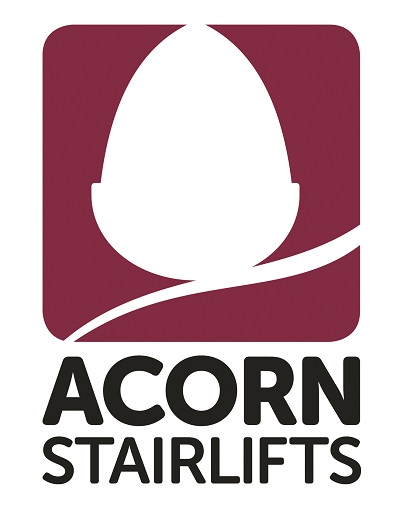What’s the most dangerous part of your home?
You might think it’s the kitchen, with the potential for cooker fires, scalding water or accidents with sharp knives or domestic appliances. Perhaps it’s the bathroom, with all those hard surfaces so easy to slip on when they’re wet and you’ve nothing on your feet?
 In fact, the domestic setting where most serious and even fatal injuries occur is on the stairs. A simple trip or stumble in any other part of the home might cause a relatively minor injury, but if it happens on the stairs it could be catastrophic.
In fact, the domestic setting where most serious and even fatal injuries occur is on the stairs. A simple trip or stumble in any other part of the home might cause a relatively minor injury, but if it happens on the stairs it could be catastrophic.
According to the Office for National Statistics, around 650 deaths occur each year in the UK as a result of accidents on the stairs, mostly among older people. In addition, around 57,000 people of all ages attend hospital A&E departments with a variety of injuries caused by accidents on the stairs. Some can be life-changing, with only one in three older people who suffer a hip fracture able to return to their previous level of fitness.
Causes of accidents on the stairs fall into three broad categories – environment, behaviour and physical ability. Let’s look at each one in more detail:
Environment – this refers to any factors on or around the stairs which could make it more likely for someone to fall. For example, if the stairs carpet is loose or worn, or the stairs themselves are in poor condition. Other environmental factors include objects left on the stairs; wobbly, insubstantial or missing banister rails; inadequate lighting from too few lights or low-power bulbs; and even heavily patterned carpets which make it difficult to differentiate between steps or judge depth.
The good news is that all these environmental factors can be rectified, by making sure carpets are secure and kept plain, sturdy banister rails are fitted, stairs are well lit, free from clutter and so on. Taking the time to do these things could prevent a serious accident or even save a life.
Behaviour – even good quality, well-lit, clutter-free stairs can become dangerous if we use them in the wrong way. Behavioural factors which make accidents more likely include hurrying on the stairs; wearing loose-fitting, unsuitable footwear or floor-length clothing which you might catch your foot on; becoming distracted, not concentrating or daydreaming; not switching on the stairs light; not wearing glasses if your vision is poor; carrying heavy or awkward loads; leaving clutter on the stairs; and impairing your ability and judgement by drinking too much alcohol.
Once again, there’s good news in that addressing the way we use the stairs and getting into good habits can substantially reduce the risk of an accident. Going up and downstairs should be something we actively think about, especially as we get older. Pay attention to taking each step, placing your feet and shifting your weight from step to step. Don’t try to carry too much – either split the load or wait for help. And above all, never hurry on the stairs.
Physical ability – as we get older, using the stairs can become more of a challenge, either gradually over time or suddenly after an accident, medical procedure or illness. Decreasing muscle strength, problems with balance and reduced mobility through a variety of age-related conditions can all make it more difficult to use the stairs safely. Similarly, failing eyesight, side-effects of medication or conditions which leave you feeling lightheaded or breathless can make using the stairs arduous and unpleasant.
Unlike the previous two categories, some of these issues are not so easily ‘fixed’ and may become long-term and steadily worsening, but that doesn’t mean there isn’t a solution. Fitting an Acorn Stairlift effectively removes the obstacle of stairs from your home, meaning you can access all areas of your home as often as you like, in comfort and safety.
If the potential danger presented by your stairs falls into the ‘physical ability’ category, then an Acorn Stairlift is the best way to eliminate the risk of an accident. It will also prevent you and your loved ones worrying about your safety on the stairs and bring valuable peace of mind.
Acorn Stairlifts can be fitted in a matter of days, even on curved or non-standard staircases, and with no fuss, mess or major structural work. Because our stairlifts are designed to be compact, easy to fold away and to blend with your home’s décor, your stairs can still be used normally by others in your household or visitors. For a completely free, no-obligation home survey and quote, call us on 0808 223 4871.
Why take the risk, when an Acorn Stairlift can ensure your safety on the stairs now and in years to come?
